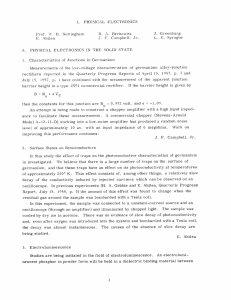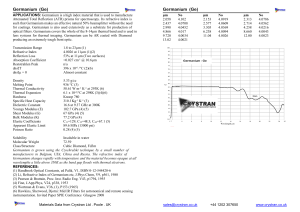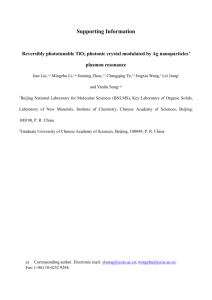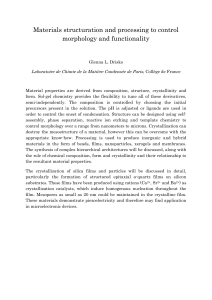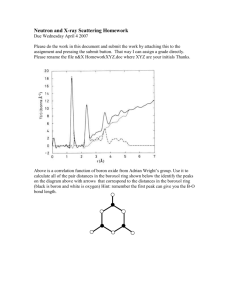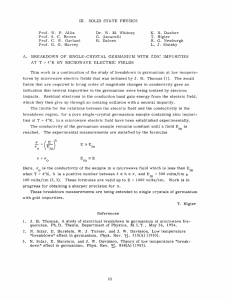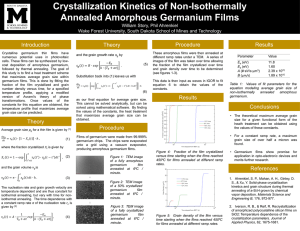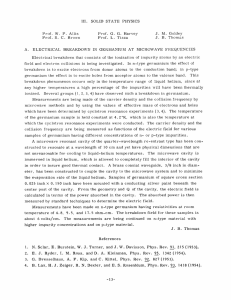Germanium Nanoparticle Films for Thermoelectrics Ben Zhou
advertisement
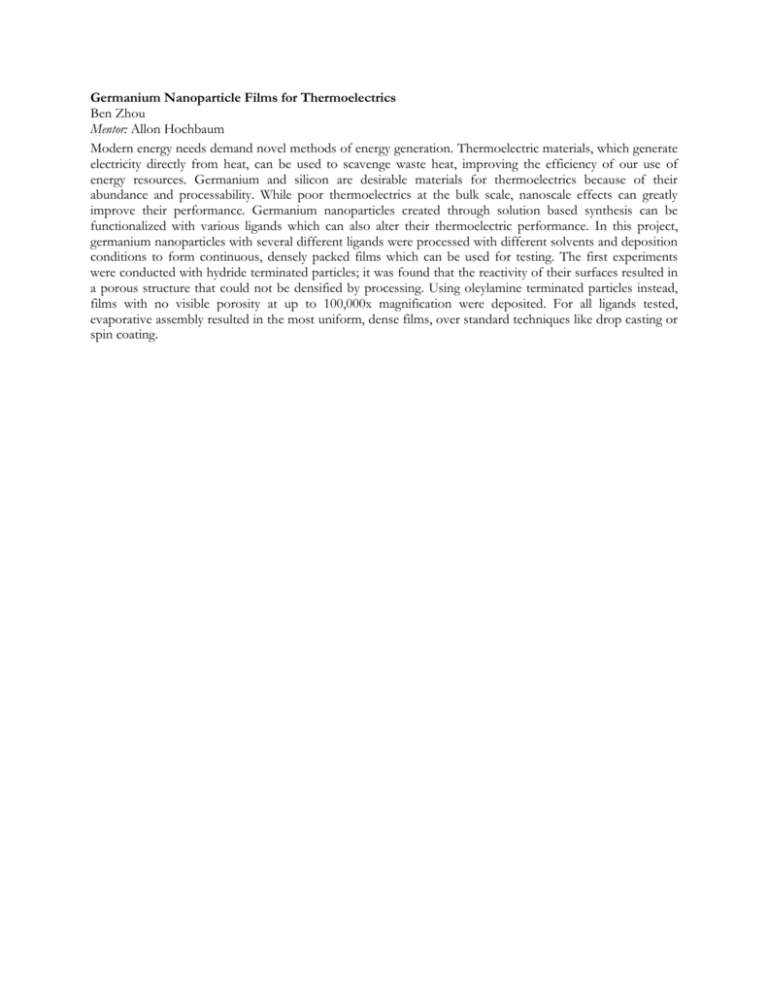
Germanium Nanoparticle Films for Thermoelectrics Ben Zhou Mentor: Allon Hochbaum Modern energy needs demand novel methods of energy generation. Thermoelectric materials, which generate electricity directly from heat, can be used to scavenge waste heat, improving the efficiency of our use of energy resources. Germanium and silicon are desirable materials for thermoelectrics because of their abundance and processability. While poor thermoelectrics at the bulk scale, nanoscale effects can greatly improve their performance. Germanium nanoparticles created through solution based synthesis can be functionalized with various ligands which can also alter their thermoelectric performance. In this project, germanium nanoparticles with several different ligands were processed with different solvents and deposition conditions to form continuous, densely packed films which can be used for testing. The first experiments were conducted with hydride terminated particles; it was found that the reactivity of their surfaces resulted in a porous structure that could not be densified by processing. Using oleylamine terminated particles instead, films with no visible porosity at up to 100,000x magnification were deposited. For all ligands tested, evaporative assembly resulted in the most uniform, dense films, over standard techniques like drop casting or spin coating.


